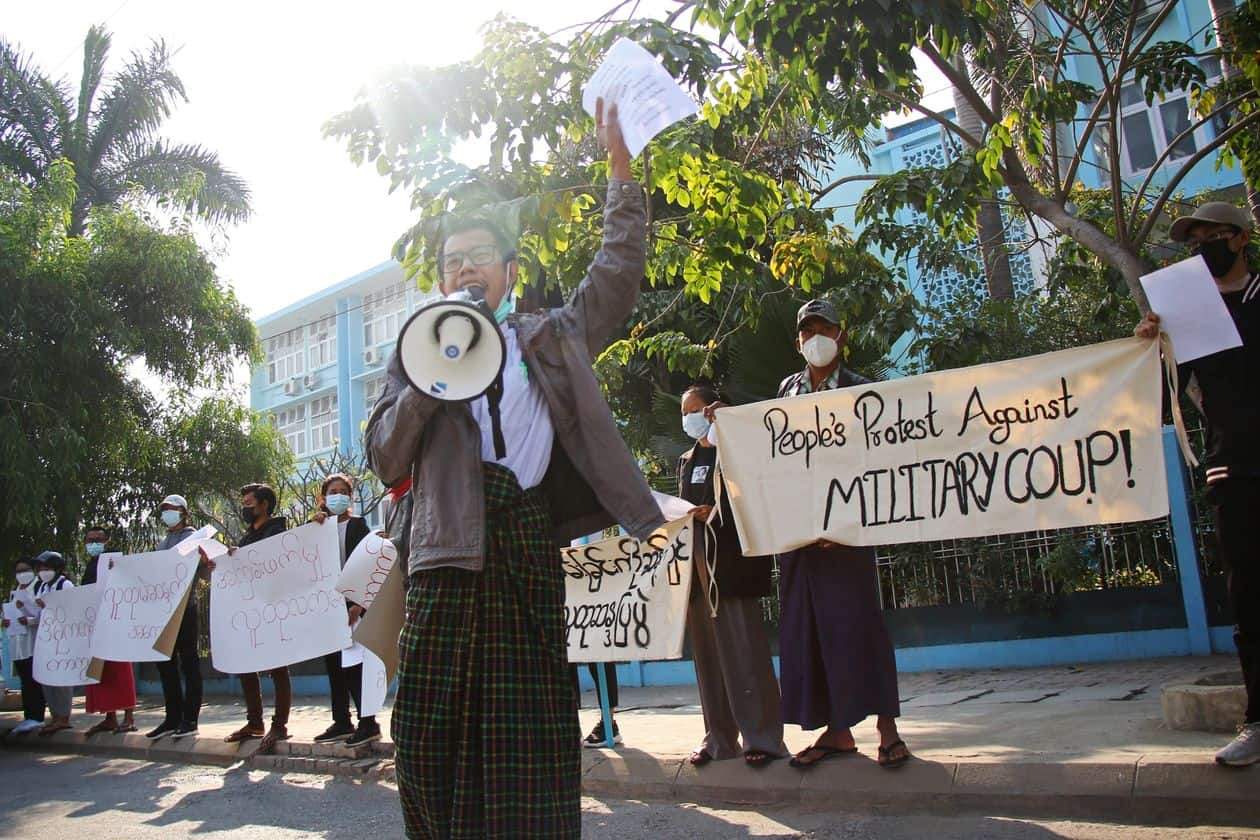Myanmar Blocks Facebook Access After Online Protests of Military Coup

Myanmar blocked access to Facebook after some users in the country in recent days shared material challenging a Monday military coup that ousted the elected civilian government.
People in the country had been posting to Facebook images of people banging pots and pans in a show of opposition to the coup. Some people were also shown making a three-fingered salute that was a symbol of resistance in “The Hunger Games” books and movies, and adopted by protesters after a 2014 military coup in neighboring Thailand.
Some users in Myanmar also changed their Facebook profile photos in recent days to an image showing a white hand making the gesture, set against a black background.
“Telecom providers in Myanmar have been ordered to temporarily block Facebook,” a spokeswoman for Facebook Inc. said Thursday. “We urge authorities to restore connectivity so that people in Myanmar can communicate with family and friends and access important information.”
Telenor Myanmar, part of Norway’s Telenor Group, said it had complied with a government directive to block Facebook and that it was seeking to restore access to the service as soon as possible.
A spokesman for Myanmar’s communications ministry didn’t immediately respond to a request for comment.
NetBlocks, a London-based organization that monitors internet access, on Thursday said Facebook, Facebook Messenger, and Facebook’s Instagram and WhatsApp services were unavailable on state-owned Myanmar Posts and Telecommunications’ network.
Facebook is Myanmar’s dominant channel for online communications, used by about half of the country’s more than 50 million people. As internet access in the developing Southeast Asian nation has boomed, many have embraced the platform. But it has also been linked to violence in the country.
United Nations investigators in a 2018 report called for Gen. Min Aung Hlaing to be prosecuted for genocide over his role in a military campaign the previous year that killed thousands of members of the Rohingya minority and sent some 740,000 fleeing across the border to Bangladesh. Facebook acknowledged its slow response to a torrent of anti-Rohingya hate speech and misinformation on the platform in Myanmar.
The company in 2018 removed hundreds of pages, groups and accounts, some tied to Myanmar’s military, that it said had abused its services. A Myanmar military television network page later re-emerged, and after Wall Street Journal queries about it, Facebook removed it on Monday.
Gen. Min Aung Hlaing took charge of the country Monday from its civilian-run government after the military detained elected leader Aung San Suu Kyi and other members of her party in a raid that morning.
Twitter Inc., which is less popular than Facebook in Myanmar, remained available on Thursday. With Facebook inaccessible, some people used the platform to voice their anger about the coup. “It’s great to see the transition from Facebook to Twitter among Myanmar people but it’s a shame it has to be under these circumstances,” one wrote.Photo: Protesting the military on Thursday in Mandalay, Myanmar. - STRINGER/REUTERS
Link: Myanmar Blocks Facebook Access After Online Protests of Military Coup - WSJ











